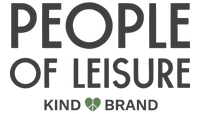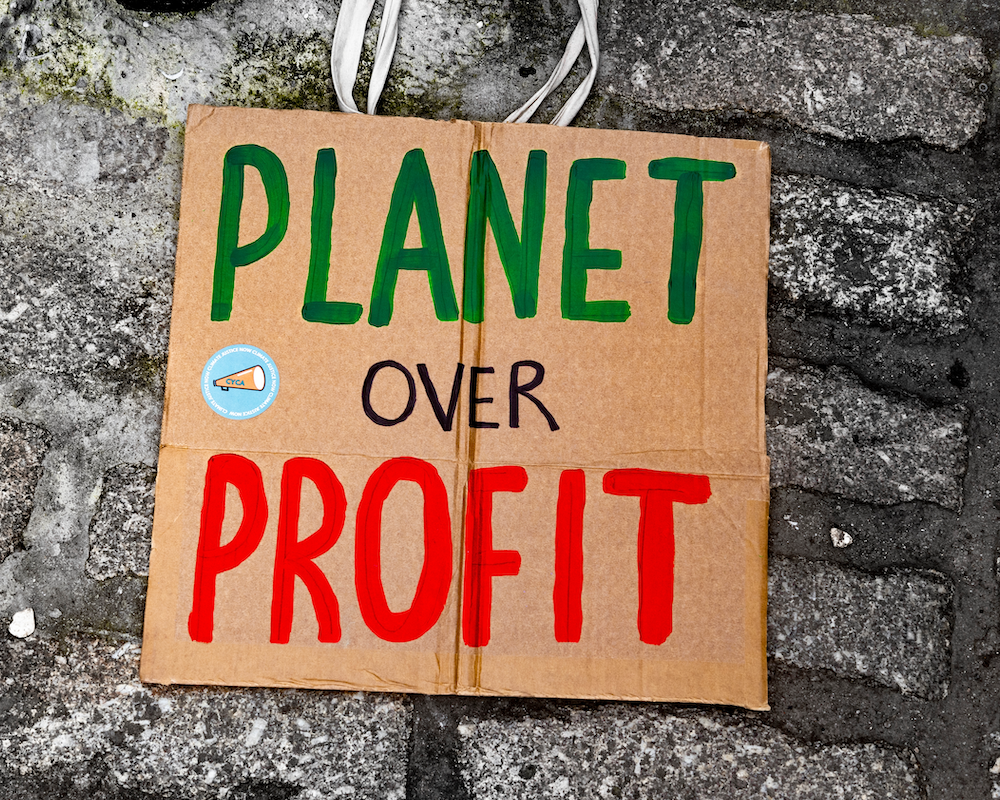The fashion industry, while on the surface depicts a realm of glamor and style for many, also has a hidden, darker reality that's rooted in human rights violations.
As a conscious consumer, we stand by the importance of educating yourself on the many ways human rights violations are rampant within the fast fashion industry, starting with how the rapid production and consumption of clothing items at low costs comes at the expense of fundamental human rights. To put it plainly, if it's cheap and easy for you to buy your clothes, you can bet someone else is paying the price. If that sounds horrible, it's because it is.
Here at People of Leisure, we believe it's our job to lead with kindness by deliberately choosing to be sustainably and ethically responsible for our clothing production. We also believe it's our responsibility to share our journey and tackle difficult issues within the garment industry. That's why, in this blog, we're delving into fast fashion's dark side and shedding light on human rights violations in the global fashion industry.
The Fast Fashion Industry Model: Fueling Exploitation
At its heart, the fast fashion business model is problematic. Many, if not all fast fashion brands, operate on mass production, exploiting garment workers in various parts of the world. These workers, predominantly in developing countries, toil in garment factories under appalling conditions. To name a few, they receive meager wages, endure unsafe workplaces, and face gender-based violence.
Tragedies like the Rana Plaza collapse in Bangladesh come to mind. This catastrophe, which claimed numerous lives, shed light on the harsh realities faced by garment workers and brought global attention to the cost of disregarding human rights within the fashion supply chain.
Human Rights, Fast Fashion Brands: Who Pays the Price?
The cost of fast fashion extends far beyond its price tags. It encompasses various detrimental impacts on the environment, the global economy, and of course, society.
Sadly, the supply chain of fast fashion brands in the garment industry often involves subcontracting to factories with low labor standards, perpetuating an exploitative cycle. It's not uncommon that minimum wages continuously fail to meet basic living standards, leaving workers vulnerable and trapped in poverty. This flagrant disregard for labor standards and minimum wage requirements leads to a vicious cycle of poverty and vulnerability - which is simply not okay.
To rectify these inhumane practices and advocate for fair wages and improved working conditions for garment workers, we believe that addressing the plight of garment workers within the fast fashion model demands urgent attention.
Environmental Impact and Textile Waste
Fast fashion isn't just a human rights issue; it's also an environmental crisis.
As you can imagine, the rapid pace of clothing production contributes significantly to textile waste and depletes natural resources which significantly contributes to global warming. Fast fashion garments, especially conventional cotton, consumes vast quantities of water, the effects of which will undoubtedly impact future generations.
This calls for the urgent need to uphold sustainable practices in order to mitigate textile waste, preserve natural resources, and combat the looming threat of global warming caused by the fashion industry's environmental footprint.
Consumer Demand and the Fast Fashion Revolution
Like with many industries, consumer demand can drive a fast fashion brand to adopt unsustainable practices. The insatiable hunger for new trends and clothing propels the industry's unrelentless pace, fueling rapid production and consumption.
To sum it up, this demand fuels the need for more clothing items at low prices, perpetuating the cycle of exploitation and environmental degradation.
That said, the relationship between fast fashion companies and consumer demand begs a critical question: consumer responsibility. With consumers dictating trends, they inevitably hold the key to reshaping the fashion industry.
By advocating for sustainable practices, embracing conscious consumption, and supporting ethical brands, consumers can influence a transformation toward a more responsible and sustainable fashion landscape. This will ultimately steer the clothing industry toward more sustainable brands which engage in ethical and environmentally conscious practices.
Recognizing Our Responsibility in the Clothing Sector
As a sustainable fashion label, we're committed to transparently minimizing our environmental and social footprint. Our ongoing efforts have focused on four UN Sustainable Development Goals. These initiatives aim to shrink our carbon footprint while enhancing the well-being of those who work with us.
How exactly do we do this? At People of Leisure, our ethos rests on valuing and respecting our workforce. Through our Zero Sweat policy, we uphold ethical standards, ensuring all employees (not only under People of Leisure but with our production teams) receive fair wages and work in dignified conditions. This commitment extends to responsible production practices, aligning our principles with the well-being of our workers and standing against the exploitative norms which are rampant in the fast fashion landscape.
The Call for Change: Moving Towards Ethical Alternatives and Sustainable Brands
The violation of human rights within the fast fashion industry is a complex issue requiring multifaceted solutions.
As we mentioned earlier, you, as a consumer, play a pivotal role in driving much-needed transformation within the fashion industry. This fills us with hope.
Shifting toward conscious consumption can be as simple as embracing second-hand clothing, supporting sustainable brands, creating a minimalist wardrobe, and demanding fair labor practices. By supporting sustainable brands, we can foster a future where fashion thrives ethically and sustainably, ultimately creating a kinder world for our planet and for each other.






